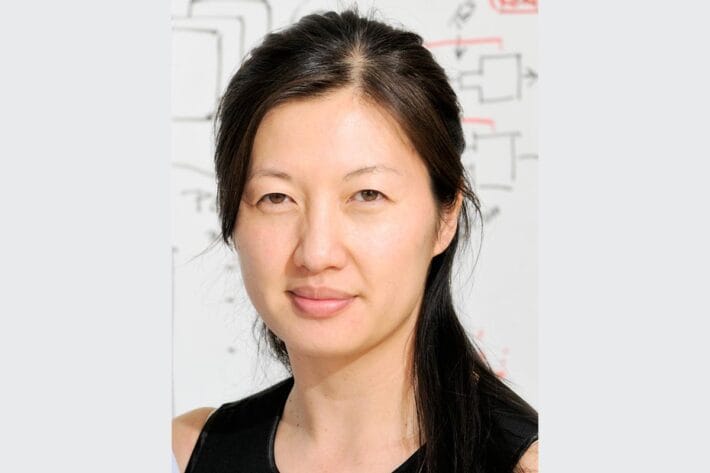
Why do long hairs grow on our scalp, but not on our palms or the soles of our feet? How do cells decide where they should be located in the body? Unconventional questions such as these — in particular, those with a direct connection to human diseases — drive the research of Howard Y. Chang. A passion for finding the answers has led to the discovery of a number of far-reaching insights into gene regulation.
With a disciplined mind even as a teenager, Dr. Chang, born in Taipei, Taiwan, remembers well the shock of his first day in junior high school in Southern California, where his family moved when he was 12 years old. Initially he made do with a vocabulary gleaned from watching ‘80s sitcoms. By high school, he had resolved to improve his English by joining the debate team, and came to relish the freedom in America to argue both sides of an issue.
He went on to earn his bachelor’s in biochemical sciences from Harvard University in 1994. He then joined the Harvard-MIT MD-PhD program, and together with MIT Professor David Baltimore discovered several key biochemical control mechanisms of how cells self-destruct, which have important applications in the study of cancer, autoimmunity, and degenerative diseases.
While pursuing medical training in dermatology, Dr. Chang began his postdoctoral research in Professor Patrick Brown’s lab at Stanford University. There, he began a new research program to understand the basis of site-specific differences in human skin, resulting in novel modes of gene control that extends from cancer treatment to aging. The breakthroughs made by Dr. Chang and his colleagues may suggest new approaches for the treatment of malignant tumors.
Dr. Chang is a prolific and acclaimed writer, having published more than 60 papers in such journals as Nature, >Cell, Science, Nature Genetics, PLoS Genetics, and more. He is also a member of the Stanford Comprehensive Cancer Center.
Awards and Accomplishments
- Research Scholar Award, American Cancer Society (2007)
- Scholar Award, Damon Runyon Cancer Research Foundation (2006-2008)
- Clinical Scientist Career Development Award (K08), NIH (2004-2009)
- Physician-Scientist Career Development Award, Dermatology Foundation (2004)
- Young Investigator Award, American Academy of Dermatology (2003)
Follow Howard Chang
Jury Members
2009 Vilcek Prize for Creative Promise in Biomedical Science
Heran Darwin
Laurie Dempsey
Peter Palese
Jan Vilcek
Leslie Vosshall
Nicholas Wade
Jedd Wolchok
Related Prize Recipients
Kivanç Birsoy

Antonio Giraldez

Alice Ting

You may also be interested in
Breaking Fundamental Biological Law: Research by Takashi Akera Investigates Selfish DNA

Vilcek Foundation honors immigrant scientists with $250,000 in prizes

Kivanç Birsoy: “I feel like I contribute—at least—to the understanding of this disease”
